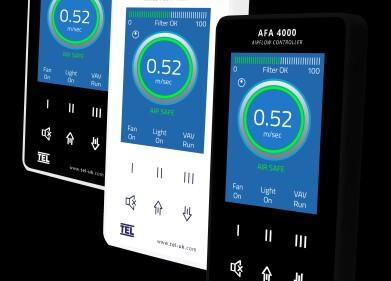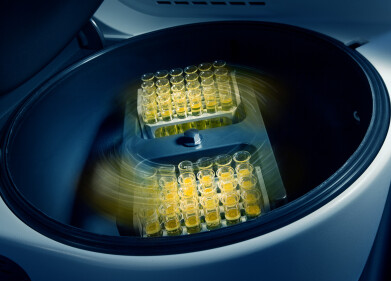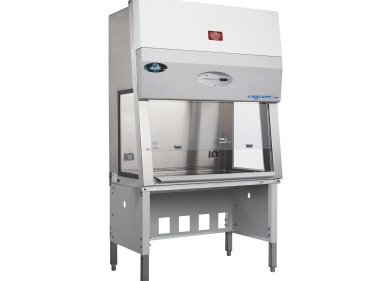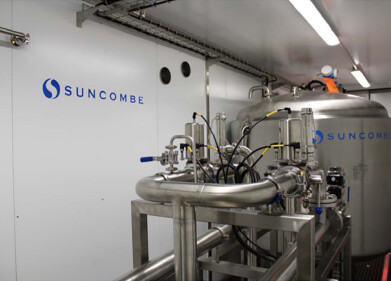-
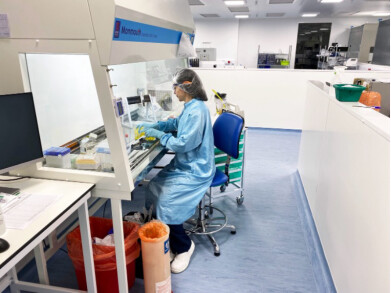 A Monmouth Scientific Class 2 Biological Safety Cabinet in operation at Molecular Devices' new life science facility, designed for the industrial-scale production of organoids.
A Monmouth Scientific Class 2 Biological Safety Cabinet in operation at Molecular Devices' new life science facility, designed for the industrial-scale production of organoids.
Lab safety
Revolutionising organoid manufacturing: Class 2 biological safety cabinets enhance sterility and efficiency at new life science facility
Aug 13 2024
Global life science and 3D biology pioneers Molecular Devices has launched a ground-breaking life sciences facility in Cardiff, dedicated to research, development and industrial-scale manufacture of organoids.
The organoids structures originate from human stem cells and represent organs in the body. They are instrumental in advancing drug discovery by providing human-centric models that give accurate predictions for the safety and efficacy of potential new therapeutic compounds.
The ability to produce organoids at such a large scale is unprecedented and offers the potential to streamline the drug discovery process, allowing for a rapid transition from laboratory research to medical applications and reducing the high failure rates commonly seen in clinical trials.
The facility, underpinned by the firm’s proprietary bioreactor technology, is poised to revolutionise healthcare through the provision of large quantities of consistent and reproducible patient-derived organoids. The initiative aligns with the UK Government’s Life Sciences Vision, bolstering the sector, which contributes over £94 billion to the UK economy.
Sterility and contamination control
To ensure the highest levels of sterility and contamination control within their new facility, Molecular Devices opted to install Guardian Class 2 Biological Safety Cabinets provided by Monmouth Scientific (Microbiological Safety Cabinets – MSCs). The need for stringent regulation is critical in the production of organoids, as even minor particulate contamination can significantly impact the quality and consistency of these delicate structures.
Within the Controlled Laboratory, Class 2 MSCs serve as an essential component, maintaining sterility during the manipulation of cell cultures. The filtration and air flow within the cabinets provide a clean environment and an air curtain that protects both the user and the cultures, from exposure to contaminants.
The facility is also equipped with advanced air filtration systems and working protocols for laboratory personnel that include the use of non-particulating suits, hair nets, sterile clogs, and an air shower entry system to minimise particulate load.
Processes and experiments
Inside the Class 2 MSCs, Molecular Devices’ scientists perform a variety of critical tasks, including:
Organoid Expansion Projects: Custom expansion of organoid lines for clients, ensuring high-quality, uncontaminated cultures.
Research and Development (R&D): The team is engaged in many different projects including optimising the growth of organoid lines and tissue types, improving next-generation organoid expansion technologies and refining organoid characterisation techniques such as immunohistochemical staining to better identify different cell types within the organoids.
3D Imaging and Automation: Collaborations with Molecular Devices teams globally aim to enhance 3D imaging and automation technologies crucial for advancing organoid research and their applications.
Impact on workflow and efficiency
The incorporation of Class 2 MSCs has significantly enhanced the workflow and efficiency at the facility.
Historically, prior to the availability of safety cabinets, tissue culture work was performed on open lab benches, posing a high risk of contamination. The lengthy manipulations and labour-intensive nature of organoid work necessitates long periods of culture work at a time and would simply not be possible. Contamination of cultures would lead to batch failures and substantial financial implications.
The suite of Class 2 MSCs at the new facility each provide an independent sterile workspace for individual organoid lines, mitigating the risk of cross-contamination and ensuring the integrity of large-scale organoid production. This has streamlined operations, improved the reliability of results, and maintained the high standards required for industrial manufacturing.
Experience with Monmouth Scientific
Elizabeth Fraser - Strategy Partner - Molecular Devices
“Our experience with Monmouth Scientific has been very positive.
“The installation of the Class 2 Biological Safety Cabinets and the opening of our new laboratory facility represents a significant milestone in the industrial-scale production of organoids and an advancement in drug discovery.
"Monmouth Scientific worked with us to ensure the safety cabinets were manufactured, delivered and commissioned in alignment with the facility's setup timeline. Additionally, Monmouth Scientific provide ongoing service and maintenance for the units, safeguarding their performance.
"The project has been instrumental in the successful establishment and operation of our new facility.”
More information online
Digital Edition
Lab Asia 31.6 Dec 2024
December 2024
Chromatography Articles - Sustainable chromatography: Embracing software for greener methods Mass Spectrometry & Spectroscopy Articles - Solving industry challenges for phosphorus containi...
View all digital editions
Events
Jan 22 2025 Tokyo, Japan
Jan 22 2025 Birmingham, UK
Jan 25 2025 San Diego, CA, USA
Jan 27 2025 Dubai, UAE
Jan 29 2025 Tokyo, Japan
